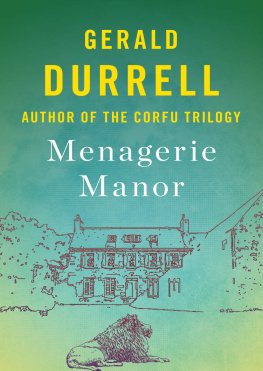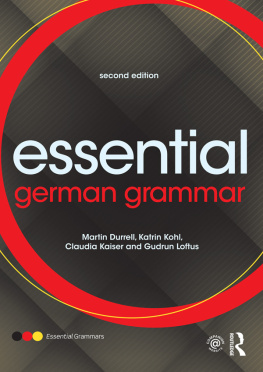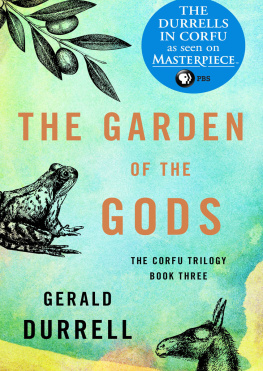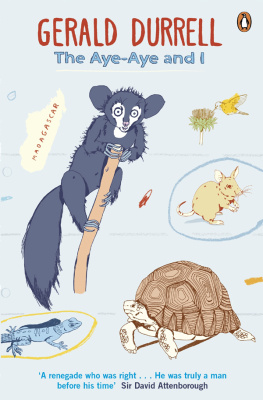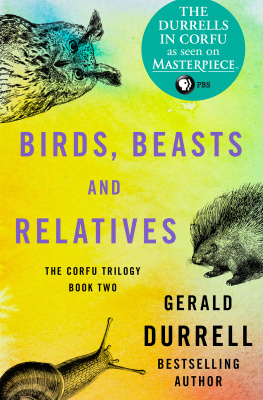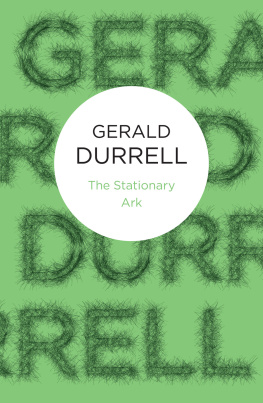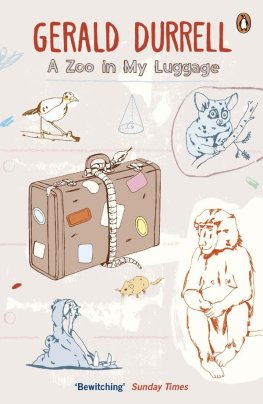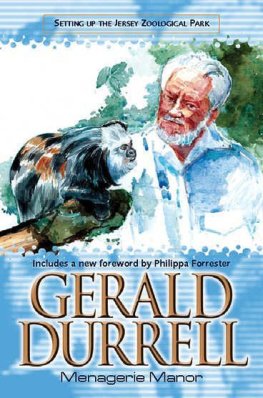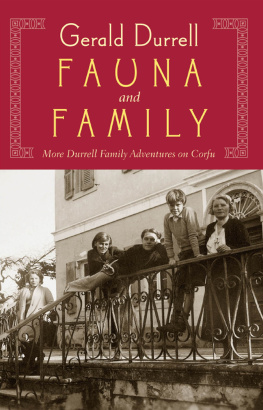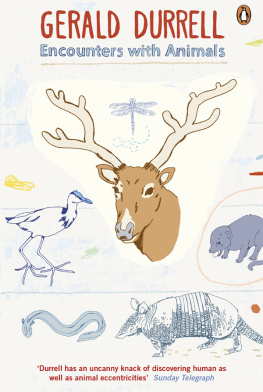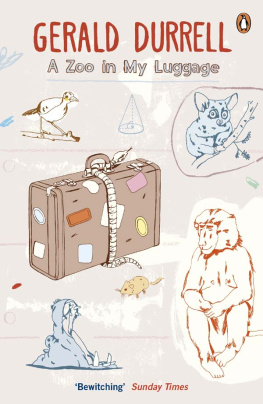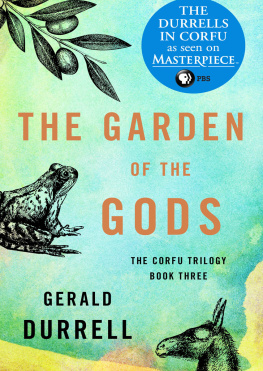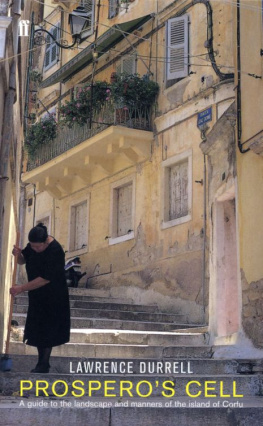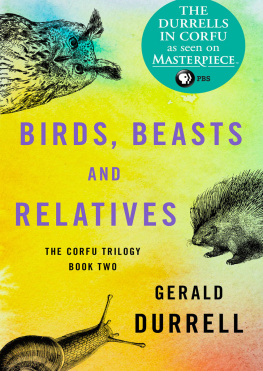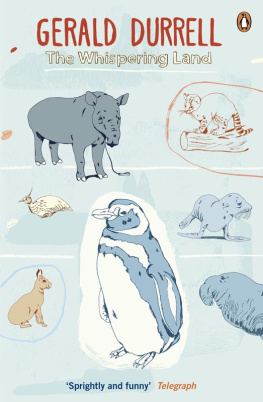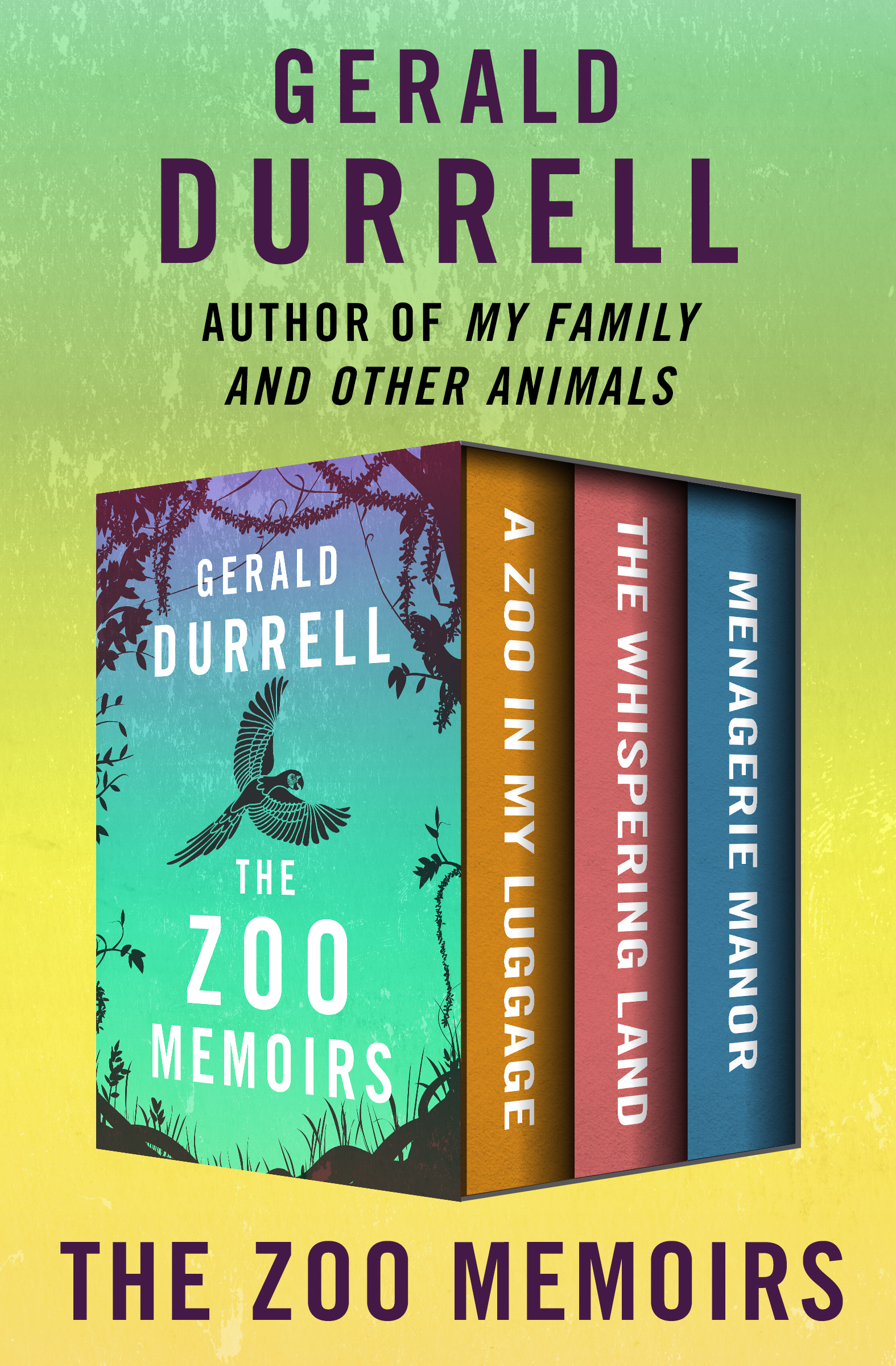Contents
The Zoo Memoirs
A Zoo in My Luggage, The Whispering Land, and Menagerie Manor
Gerald Durrell

CONTENTS
A Biography of Gerald Durrell
Gerald Durrell was an author, conservationist, and naturalist. A pioneer in zoo biology, he designed his zoos with the goal of preserving endangered species rather than entertaining humankind. His memoirs and novels captured his irrepressible enthusiasm for animals, as well as his wonderful sense of humor, and have sold millions of copies worldwide.
Durrell was born in Jamshedpur, India, on January 7, 1925. When he was three years old, his father passed away and his family moved to Bournemouth, England, where they lived for four years before moving again in 1935 to the island of Corfu in Greece. There, Durrells interest in nature and wildlife flourished as he befriended Dr. Theodore Stephanides, a biologist, and frolicked among the wild creatures found on the Mediterranean island. This period became the basis for his popular memoir, My Family and Other Animals (1956). Full of playful anecdotes, the book explored his childhood with a humorous voice that charmed readers all over the world. Following My Family and Other Animals, Durrell wrote two other memoirs about his time in Corfu: Birds, Beasts and Relatives (1969) and The Garden of the Gods (1978). The series was his biggest commercial and literary success, and it was adapted several times for the small screen, most successfully in a 1987 ten-part series, My Family and Other Animals, and the recent public television series, The Durrells in Corfu.
After World War II, Durrell returned to Bournemouth and then became a student keeper at Whipsnade Zoo, gaining experience with animals rarerand largerthan those hed studied in Corfu, which reinforced his lifelong mission to preserve endangered species. He later wrote about this experience in Beasts in My Belfry (1973).
At twenty-one, Durrell received a three-thousand-pound inheritance from his late fathers legacy, and from 1947 to 1957, he traveled to the British Cameroons, British Guiana, Argentina, and Paraguay to collect wild animals for zoos in the United Kingdom. The naturalist dealt with a great variety of animals, from reptiles to birds to mammals, further expanding his knowledge of zoology and animal husbandry. His brother, the famous novelist and poet Lawrence Durrell, and his first wife, Jacqueline Sonia Rasen, encouraged him to write about his trips, and he published his first book, The Overloaded Ark, in 1953. He went on to write a number of other books about his expeditions: Three Singles to Adventure (1954), The Bafut Beagles (1954), and AZoo in My Luggage (1960).
Durrell earned enough income from his books to establish a zoo on the island of Jersey in 1959. The mission of his zoo was to breed and study endangered species in order to aid their survival in the wild, which included releasing captive-bred animals back into their native habitats once the causes for their endangerment were overcome. To support the mission, Durrell founded the Jersey Wildlife Preservation Trust in 1963. In 1976, he added a professional training program, which used the Jersey Zoo, its animals, and its staff to teach conservationists from all over the world how to protect species in their respective countries of origin. The trust has grown into an international organization with field programs in a dozen countries and has trained nearly five thousand students. After Durrells death, the trust was renamed Durrell Wildlife Conservation Trust in honor of its founder. His widow, zoologist Lee Durrell, whom he married in 1979, is honorary director of the trust and helps ensure that his conservation legacy continues.
In addition to his pioneering work saving endangered species, Durrell found fame as an author of forty-one books, published in more than thirty countries. Although he was best known for his memoirs and autobiographies, he also wrote several novels about animals: Rosie Is My Relative (1968), a story about an unusual elephant, and The Mockery Bird (1981), a book with a strong conservation message. He also wrote and presented numerous radio and television documentaries about animals and conservation.
Durrell received honorary degrees from Yale University, Durham University, and the University of Kent, the latter hosting the Durrell Institute of Conservation and Ecology. He was awarded an OBE in 1983, and several rare species have been named after him, such as Nactus serpeninsula durrelli (Durrells night gecko) and Ceylonthelphusa durrelli (Durrells freshwater crab). Durrell resided on the island of Jersey from the time he established Jersey Zoo until he passed away in 1995 at the age of seventy.
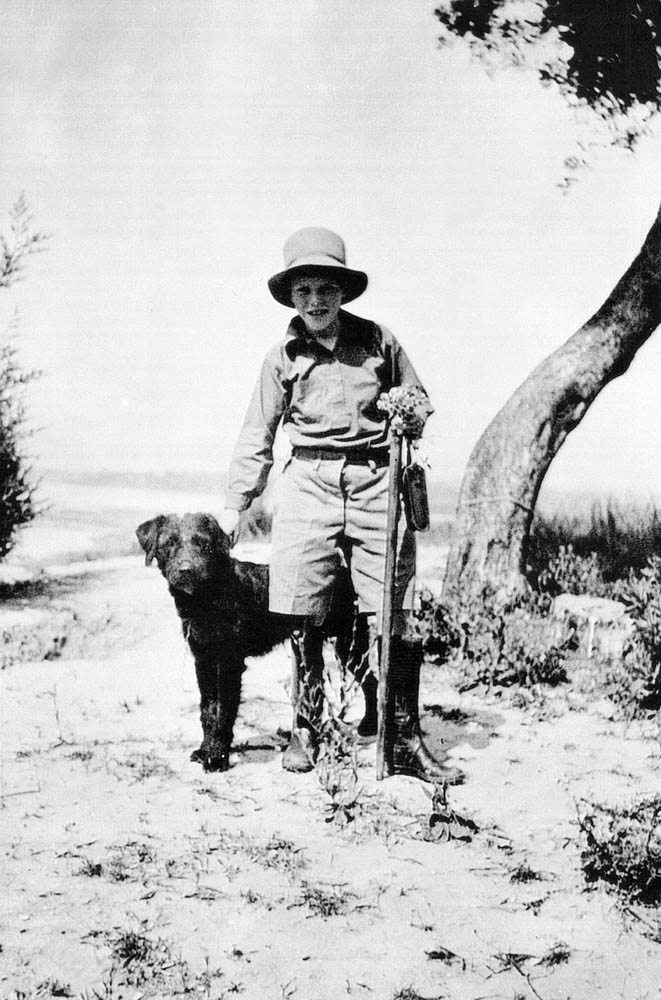
Durrell, around ten years old, in typical natural history exploration modewellies, collecting bag, walking stick, and his loyal dog, Roger, at the ready. Roger traveled with the family when they went to Corfu in 1935 and when they returned to England in 1939; he and Durrell were inseparable companions.
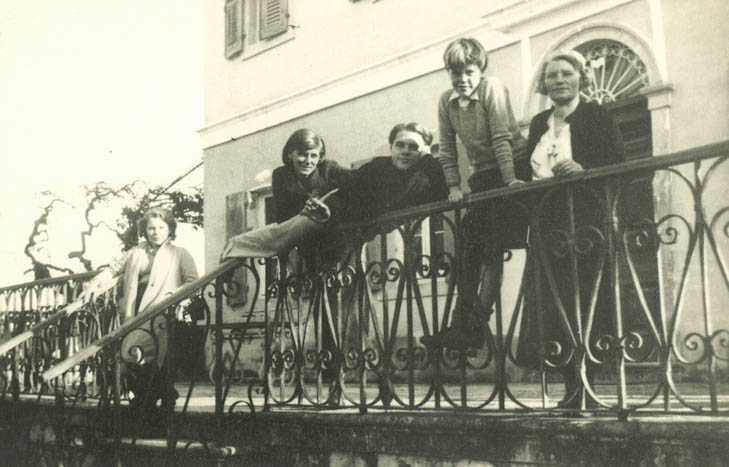
The Durrell family on the steps of the second villa they inhabited, the Daffodil Yellow Villa, which is still standing eighty years later, but painted white. Left to right: sister Margo; sister-in-law Nancy; brother, Larry; Durell; and mother, Louisa.
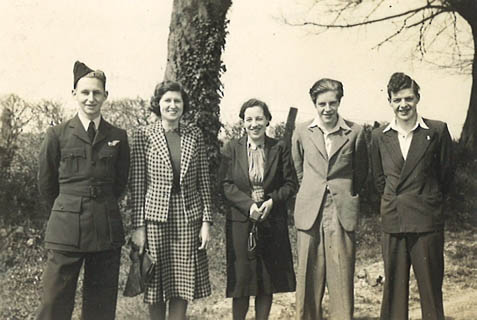
Durrell with friends during or shortly after the war, most likely in Bournemouth.
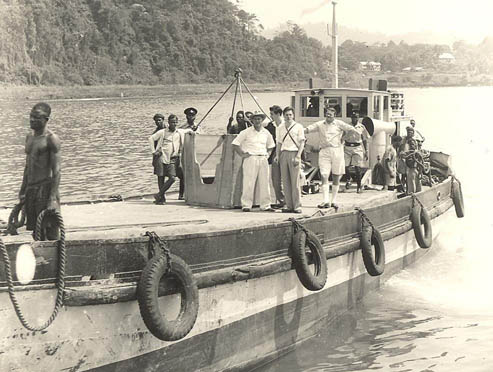
Durrell on an early animal collecting expedition in the British Cameroons in Africa in the late 1940s.
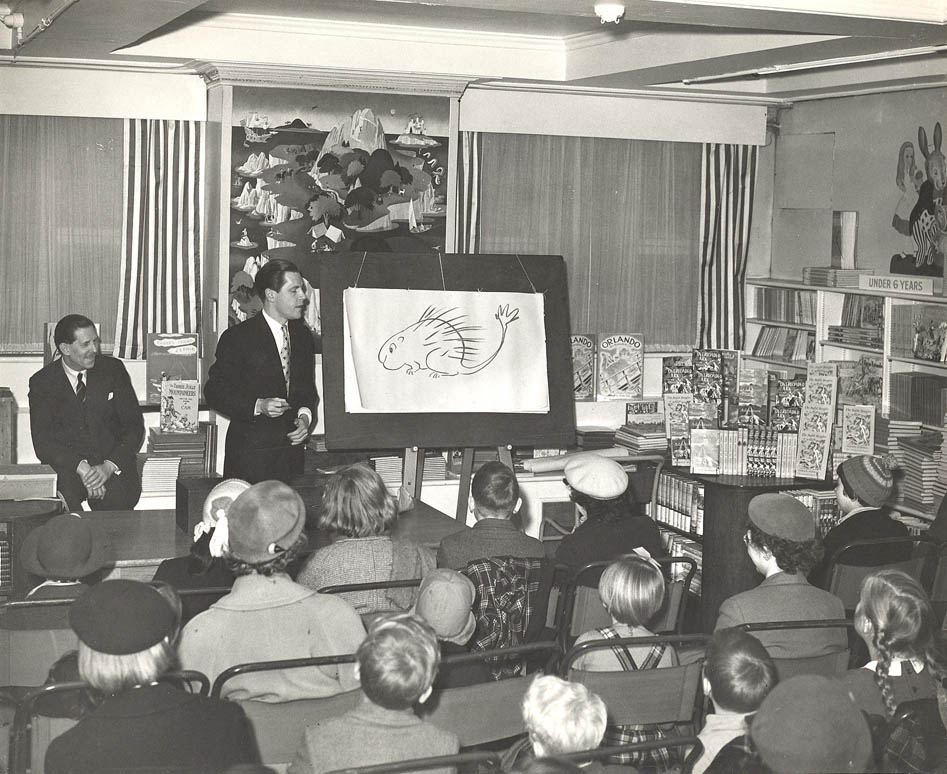
Durrell often gave illustrated talks about his expeditions, brought to life by lightning-quick sketches of some of the animals he had nurtured during the long months spent in the bush. At the 1954 launch of his third book, The Bafut Beagles, about his second trip to the Cameroons, he brought a sketch of an African brush-tailed porcupine. His first two books, The Overloaded Ark (about his first trip to the Cameroons) and Three Singles to Adventure (about an expedition to British Guiana), appear on the stand.
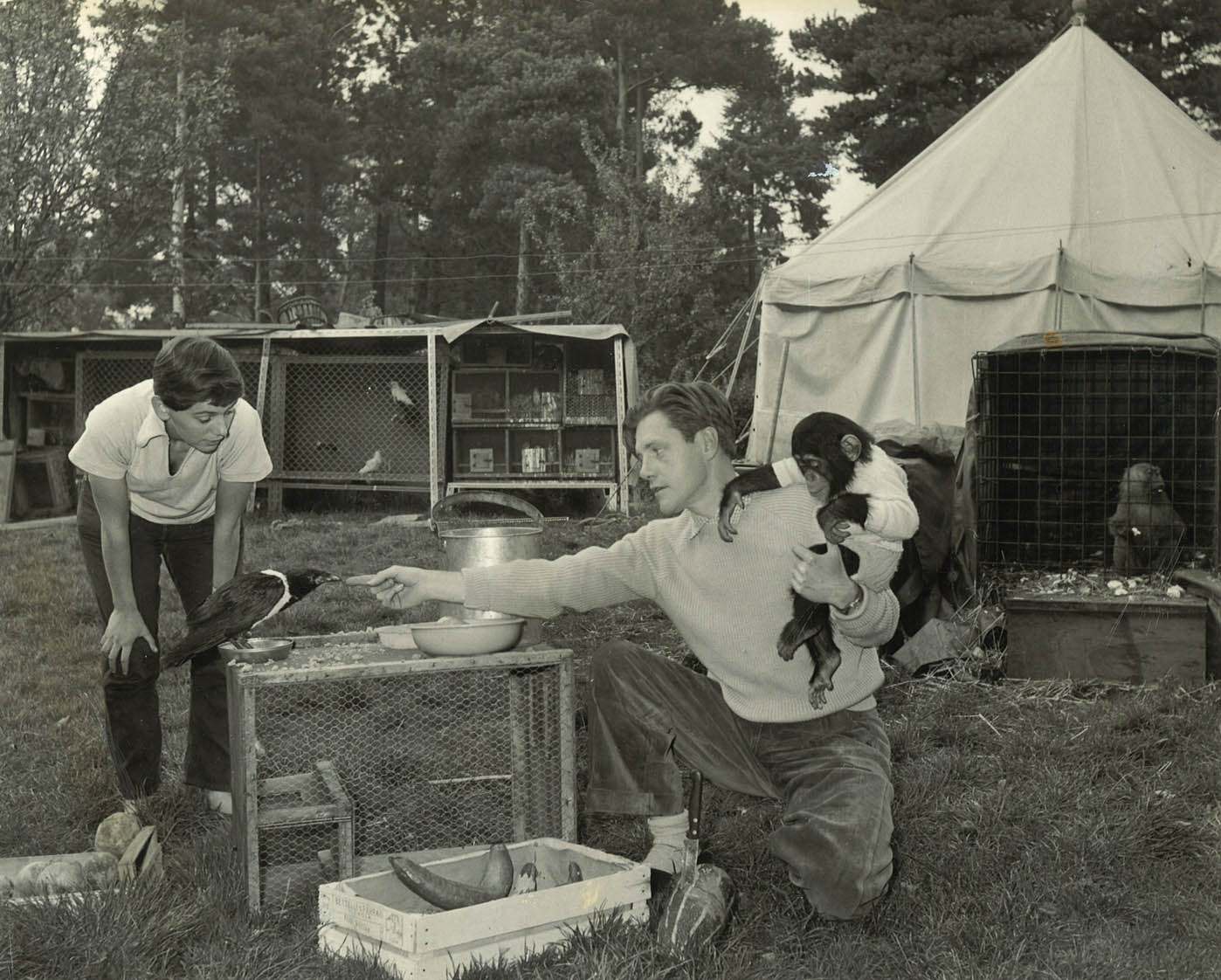
The zoos of the 1940s and 1950s were little more than menageries. Durrell was determined to set up his own zoo with a conservation mission. He intended to establish it in Dorset, installing his animals in 1957 in his sisters garden in Bournemouth, seen in this photo, as a temporary measure. Durrell is holding a young chimpanzee called Cholmondely, and his first wife, Jacquie, is admiring an African pied crow.

